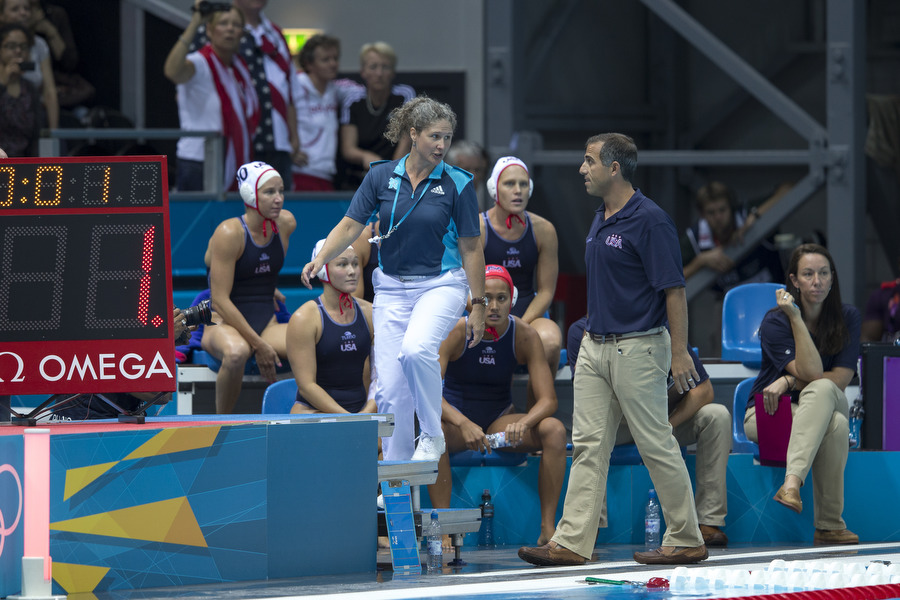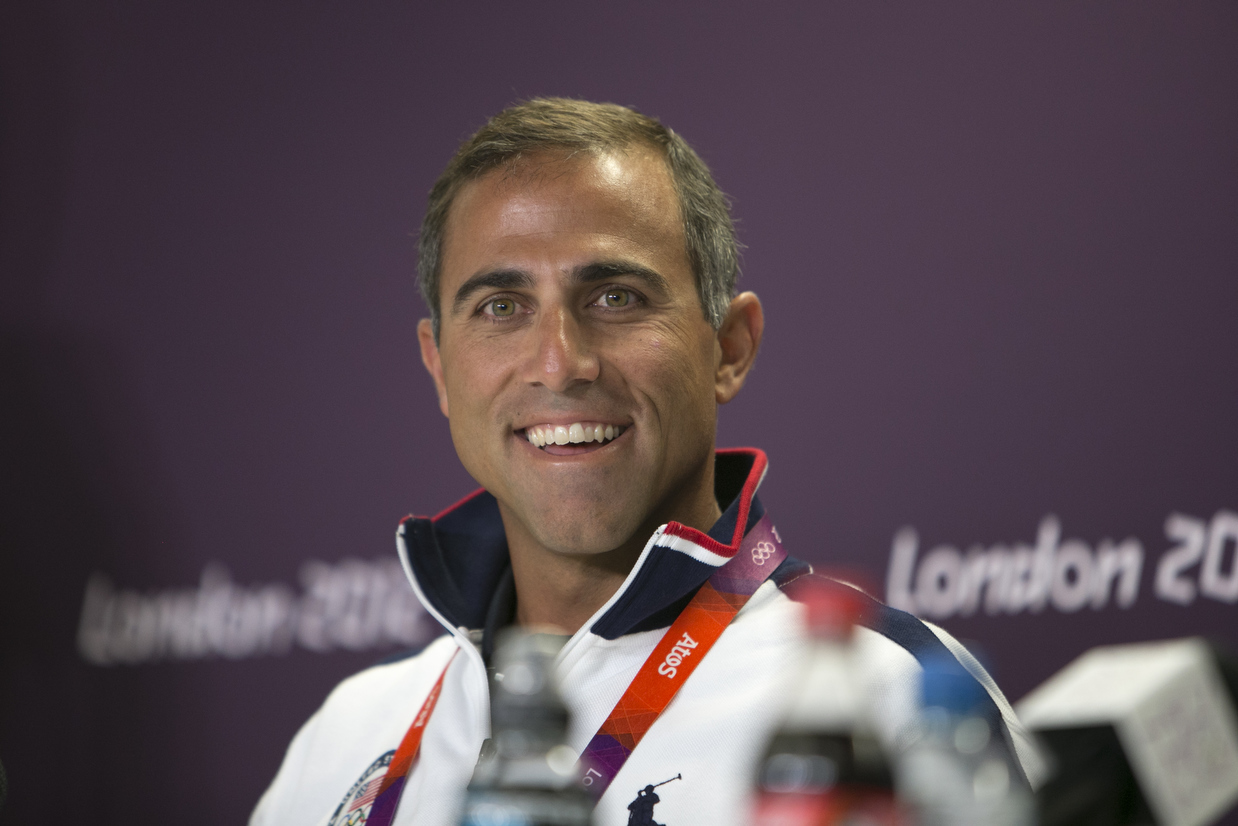KAZAN, Russia — Rachel Fattal bubbled up with absolute, incandescent delight in describing late Friday how it felt to win the women’s water polo world championship. “Surreal,” she said. Then, a moment later, “Amazing.” Then, finally, “Unbelievable amounts of joy and happiness.”
The U.S. women, led all tournament by Fattal, part of a new generation of world-class talent on the team, held on Friday night to defeat the Netherlands, 5-4, before a raucous crowd.
With the victory, the American women won their fourth world championship; no other women’s program has as many.
Further, heading now toward the Rio 2016 Olympics, the U.S. women are — all at the same time — Olympic, world championship, World Cup and World League champions.
“The media likes it. USA Water Polo likes it,” U.S. head coach Adam Krikorian said, referring to that string.
“But every team is unique. Every championship is special.”
You can talk all you want about how tough any sport on the Olympic program is. There’s no doubt the toughest is water polo. The skill set it takes to play the game at a world-class level is formidable, and that’s being generous.
The game demands that you swim, tread water and wrestle with your opponents, all the while trying to shoot the ball into a net or stopping the other team from doing the same. Try it. See if you last even one minute before you end up flopping by the side of the pool.
The U.S. women finished sixth at the world championships in 2011 in Shanghai, losing to Russia in a stunner; they got fifth at the Barcelona 2013 worlds, losing to Spain.
In between, the U.S. women took gold at the 2012 London Games.
Since London and in particular Barcelona, the team has undergone some significant changes.
Heather Petri and Brenda Villa, for instance, mainstays on the U.S. team for more than a dozen years, retired.
So, too, Betsey Armstrong, the starting goalie for years. The backup goalie, Tumua Anae — retired as well.
It is a testament to the athletes in the pipeline — as well as the skill and verve of Krikorian, his assistant coaches and staff — that the U.S. women have been able to, well, plug and play and stay not just near but at the top of the world.
It’s not just that the senior U.S. women are now world champions.
The U.S. girls’ junior and youth teams — they’re No. 1 in the world, too.
Starting goalie Ashleigh Johnson is a rising senior at — of all places — Princeton. She was named the Kazan 2015 tournament’s best goalie.
With about 4 minutes to go in Friday’s final quarter, she made a highlight reel-worthy save on a penalty shot, obviously from point blank range, delivered by Holland’s Catharina Van Der Sloot.
She made another with 16 seconds to go in the game, this time off a shot from Nomi Stomphorst, that sealed the deal for the Americans.
“I didn’t feel very much pressure,” she said when asked about taking over in goal for a mainstay such as Armstrong, adding a moment later that she and the other new U.S. goalie, Sami Hall, were able to step right in: “I feel like this is a new team.”
Which in so many ways it is.
Kami Craig, Courtney Mathewson, Maggie Steffens — they’re still key elements of the U.S. effort.
But:
Maddie Musselman, who just turned 17 in June, is going to be a senior in high school; she scored Friday night to put the U.S. ahead, 2-1, in the second period. Her dad, Jeff, pitched for five years in the major leagues, for Toronto and the New York Mets, from 1986 through 1990.
Makenzie Fisher, 18, just finished high school. Her dad, Erich, was on the U.S. men’s team that took fourth at the 1992 Barcelona Games.
Fattal is due to be a senior this fall at UCLA. She scored once Friday, cementing her status as the tourney MVP.
The set-up for the match Friday night under the lights — game time was 10 p.m. — evoked memories for not just a few observers of the women’s water polo final at the 2008 Beijing Games.
That match featured a higher-ranked U.S. team against an up-and-coming Dutch squad; the Dutch ended up winning, 9-8, on a goal with 26 seconds left from left-hander Danielle de Bruijn; she scored an astonishing seven goals.
The game Friday was notable for its defensive intensity.
Steffens, the U.S. captain, said after the game she could only hear out of her right ear; the left one got dinged, and hard.
When the game was over, two water polo caps, the special headgear that all players wear, lay at the bottom of the pool — they had been ripped off during the game.
The only two-goal lead of the game came late, the Americans up, 5-3, on Mathewson’s shot with 35 seconds to go in the third.
It stayed 5-3 until Holland’s Maud Megens scored with 3:13 to go. 5-4.
Back and forth it went, tension building, until the final save, with those 16 seconds left, by Johnson.
When the final buzzer sounded, all the American players jumped in the pool, dragging Krikorian — in a blue USA Water Polo and khaki pants — and his assistants in, too.
“I’m just happy we eeked that out,” he said. “The Dutch — they played really tough.”









